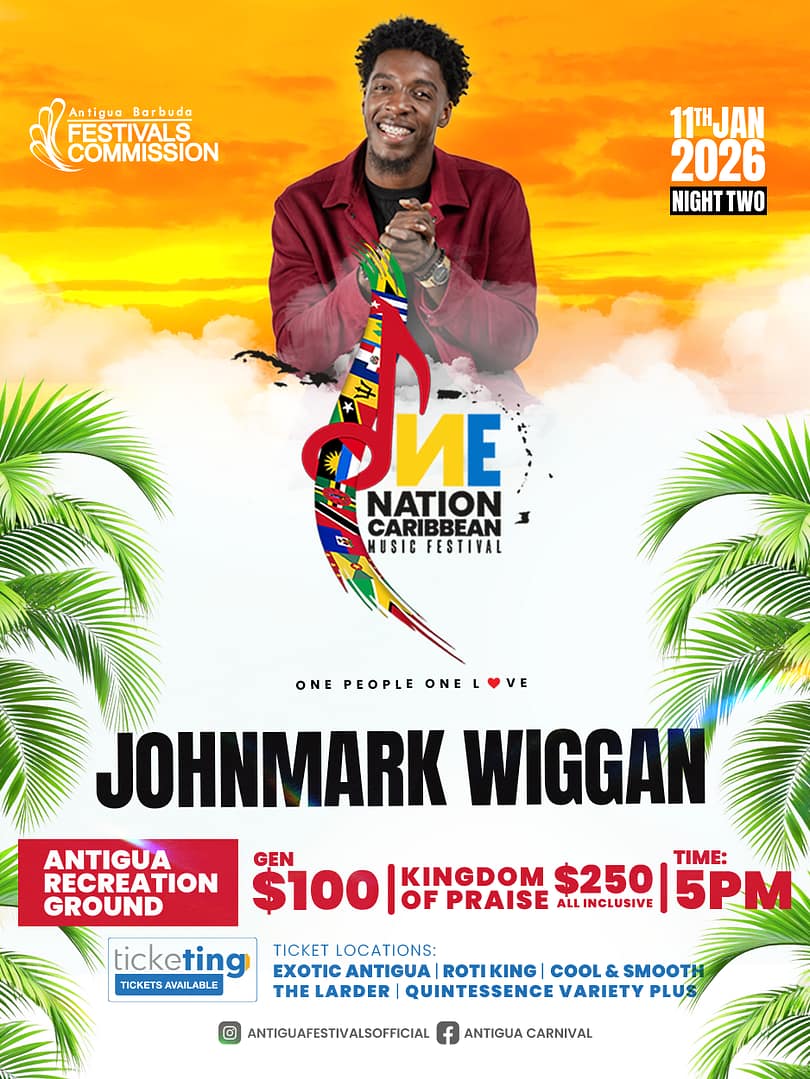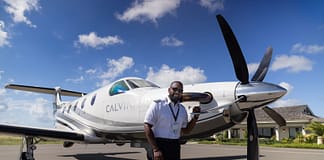
The US Department of State has noted efforts but said the Government of Antigua and Barbuda does not fully meet the minimum standards for the elimination of trafficking.
The country has been upgraded to Tier 2 in the Trafficking in Persons Report 2018 mainly for conducting more investigations and improving victim identification, conducting its first trafficking raid, establishing a new trafficking unit to coordinate and expedite efforts across
the government, tripling its budget for combating trafficking, creating new agreements with government agencies to improve coordination and victim protection, and developing
a new trafficking database to better track cases.
However, the report said the government did not meet the minimum standards in several key
areas.
“The government’s trafficking law, by allowing a fine in lieu of imprisonment, had penalties that were not commensurate with those for other serious crimes. To date, the government has failed to convict a trafficker and a ruling is still pending on penalties for complicit police officers in a 2015 case,” the 2018 report said.
It recommended that Antigua and Barbuda vigorously investigate and prosecute cases of sex trafficking and forced labor and convict and punish traffickers, including complicit officials; increase efforts to identify victims through proactive screening of vulnerable populations, such as migrants and individuals in commercial sex; develop a national action for the period beyond 2018; provide continued funding across all agencies to increase efforts to combat human trafficking; implement joint and agency-specific standard operating procedures (SOPs) for all government agencies and NGOs on victim referral; amend the anti-trafficking law to remove sentencing provisions that allow fines in lieu of imprisonment; develop formal agreements with international organizations and countries to share information and conduct joint investigations
on human trafficking cases; publish reports on government anti-trafficking efforts, and increase efforts across the country to reduce the demand for commercial sex and forced labor.
(See below for more on the 2018 report)
PROSECUTION
The government increased prosecution efforts. The Trafficking in Persons (Prevention) Act, 2010 criminalized sex and labor trafficking and prescribed penalties of up to 20 years
imprisonment, fines up to 400,000 Eastern Caribbean dollars ($148,150), or both. These penalties were sufficiently stringent.
By allowing for a fine in lieu of imprisonment for sex trafficking, these penalties were not commensurate with those for other serious crimes, such as rape. Authorities investigated eight cases of potential trafficking, compared to three in 2016; four of eight investigations remained active at the end of the reporting period, as police determined the other four did not constitute
trafficking. The remaining four cases were pending prosecution. In one of the four cases, the police, in a joint operation with several other government agencies, conducted a raid on two
nightclubs in February 2018, the first trafficking raid in the country. The police took four suspects into custody; three were subsequently released and one was charged with four counts
of human trafficking involving six confirmed Jamaican adult female victims.
A prosecution of a December 2015 case involving
two alleged perpetrators was pending a trial date in 2018. The
government has never reported any trafficking convictions.
Authorities commented police investigators and prosecutors
were overburdened and operated with limited resources.
Police and Immigration signed a Memorandum of
Understanding (MOU) this year to provide a formal mechanism
for coordination on investigating trafficking cases; one of the
four trafficking cases in 2017 originated from this MOU. The
police worked with Interpol and police from victims’ countries,
including Jamaica. However, the government lacked formal
agreements or joint investigations with these organizations
and countries. Twenty-four police, prosecutors, and judicial
personnel received training from an international organization
on victim-centered investigations and prosecutions.
The government did not report any new investigations of
government employees complicit in trafficking offenses. The
police standards committee continued to review, for disciplinary
action, the 2015 case of three police officers suspected of indirect
involvement in trafficking crimes; a hearing was expected
in 2018. Over the past three years, the police force chose
administrative sanctions for officers suspected or implicated
in trafficking, rather than charging them with a crime under
the country’s trafficking laws.
PROTECTION
The government increased protection efforts. The government
identified nine victims—eight adult female sex trafficking
victims (two from Guyana and six from Jamaica) and one
minor Antigua and Barbadian female victim; this compared to
four victims in 2016. Although the government did not have
formal SOPs for victim referral, it developed and implemented
a new referral chart that all relevant agencies used for victim
referral. The government referred the eight identified victims
to care services and assisted with one repatriation. During the
reporting period, the government signed an MOU with the
gender affairs department to provide for the immediate needs
of victims. The gender affairs department, which worked with
its network of providers, was responsible for providing care
to the victims and obtained in-kind contributions for victim
care donated from businesses. The government opened a crisis
center for trafficking victims and other victims of gender-based
violence. The government provided long-term shelter through
an informal network organized by the Ministry of Public Safety.
All victims identified during the reporting period cooperated
with law enforcement investigations. The government could
provide temporary residency status for foreign victims
who desired to stay in the country; this assistance was not
contingent on assisting law enforcement. The government
allowed testimony via video, although the director of public
prosecutions had not used this method in court to date. Per the
anti-trafficking law, a victim can file a civil suit for restitution
from a government official complicit in trafficking; however, the
government reported no civil suits during the reporting period.
The government conducted victim identification training for 30
persons including labor and immigration officers and the media.
PREVENTION
The government increased prevention efforts. According to
the Ministry of National Security, the 2017 budget for antitrafficking
efforts was 330,430 Eastern Caribbean dollars
($122,380), compared to 109,410 Eastern Caribbean dollars
($40,520) in 2016 and 66,000 Eastern Caribbean dollars
($24,440) in 2015. In addition, social services for victims came
out of the violence against women budget of the gender affairs
department. The Ministry of National Security also relied on
in-kind donations from businesses for print material and public
service announcements. All government agencies, however,
cited lack of finances as a key deficiency in increasing antitrafficking
efforts. Barbuda, the smaller sister island to Antigua,
was decimated by the passage of Hurricane Irma in September,
which placed a strain on already limited government resources.
The Trafficking in Persons Prevention Committee (TPPC), the
coordinating body for anti-trafficking efforts, was chaired by
the Permanent Secretary of the Ministry of National Security
and Labor. The TPPC, which included representatives from
various government agencies and one NGO, continued to
oversee implementation of the 2016-2018 national action
plan. The government established a new working-level antitrafficking
unit within the Ministry of National Security, which
comprised a victim care and support officer, an administrative
assistant, an accounts officer, a communications officer, and a
filing clerk. Authorities noted the unit improved coordination
and efficiency of response efforts to trafficking.
The government increased awareness activities by producing two
public service announcements and placing several billboards
across the country. In September 2017, the government
conducted a week of prevention activities in collaboration with
NGOs and media outlets. The government also designed and
presented plays at five schools. The gender affairs department
included trafficking awareness training in its gender-based
violence awareness sessions in ten communities, as well as in
a special training session for government workers.
The government had not published its 2017 annual report on
anti-trafficking efforts by the close of the reporting period. The
government created and implemented a new database, managed
by the anti-trafficking unit, to better track trafficking-related
data across the government; participating authorities noted
this database improved coordination and documentation. The
government also conducted anti-trafficking training with labor
inspectors, labor unions, and TPPC members. The government
operated a gender-based violence hotline that could handle the
reporting of trafficking and assisting victims. Through its public
awareness campaigns across Antigua, the government made
modest efforts to reduce the demand for commercial sex acts.
TRAFFICKING PROFILE
As reported over the past five years, Antigua and Barbuda
is a destination and transit country for men, women, and
children subjected to sex trafficking and forced labor. Legal
and undocumented immigrants from the Caribbean region,
notably from Jamaica, Guyana, and the Dominican Republic
are most vulnerable to trafficking. Authorities reported an
increased number of trafficking victims engaged in multipledestination
trafficking, arriving in Antigua and Barbuda for a
few months before moving on to other Caribbean countries
such as St. Kitts and Nevis and Barbados. Sex trafficking has
been reported in bars, taverns, and brothels. There are anecdotal
reports of children subjected to sex trafficking, including by
parents and caregivers. Forced labor occurs in domestic service
and the retail sector. There have been concerns about traffickingrelated
complicity by police officers.
Advertise with the mоѕt vіѕіtеd nеwѕ ѕіtе іn Antigua!
We offer fully customizable and flexible digital marketing packages.
Contact us at [email protected]


















This is what CSME has turned antigua into. A prostitution den Before the CCJ young Jamaican women with no ties to the country traveling alone could be refused entry by immigration officials.
Now they can flash their brand new passport and head right down to Wendy’s or jamdung and start selling sex.
Once they get the lay of the land they cry victim and pretend that they are being trafficked and become wardens of the state.
All of these girls know exactly what they’re coming here for and willingly come. There is hardly any work for them in Jamaica so they come to make money, plain and simple. I know it’s easy to cast moral judgements on these women but this only happens because people in high places allow it. Everyone knows where these places are, even police officers do security work for them at nights. However, something that totally astounds me every time is the hypocrisy. They create all of these watch lists and rank countries on different Tiers etc. But for some reason I keep having these crazy thoughts that if you’re going to judge other countries shouldn’t you yourself first be above reproach, shouldn’t your house be in order first. I wonder how much sex trafficking happens there yearly. Trust me a lot more than here and most other islands. Just saying.
Comments are closed.